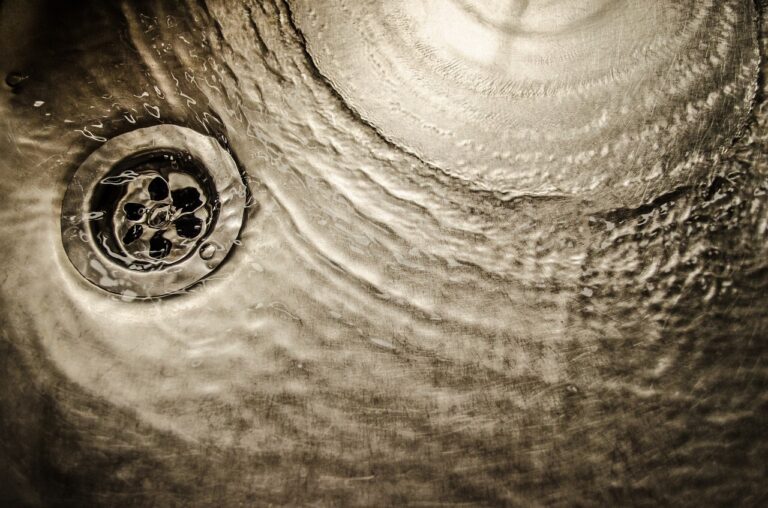Dealing with a clogged drain can be a frustrating and inconvenient experience. Whether it’s in the kitchen or bathroom, a clogged drain can disrupt your daily routine and lead to unpleasant odors and water damage. Understanding the common causes of clogged drains can help you address the issue more efficiently and prevent it from recurring.
Common Causes of Clogged Drains
Hair and Soap Scum
Hair and soap scum are two of the most common causes of clogged bathroom drains. Hair often gets tangled and collects in the pipes, creating a blockage. Soap scum, formed from soap residue and minerals in the water, can stick to pipe walls and trap other debris, exacerbating the problem. These materials build up over time, reducing water flow and eventually causing complete clogs. Regularly cleaning drain stoppers and using hair catchers can help minimize this issue.
Food and Grease
In the kitchen, food particles and grease are the usual suspects for clogged drains. Food debris can easily slip through sink strainers and accumulate in the pipes. Grease, when poured down the drain, will cool and harden, sticking to pipe walls and trapping other particles. This combination can lead to serious blockages that require special tools to remove. To prevent these clogs, always scrape food waste into the trash and never pour grease down the drain.
Foreign Objects
Foreign objects can also cause significant drain blockages. Items such as small toys, jewelry, or large food scraps can accidentally find their way into drains, creating immediate and often difficult-to-remove clogs. Smaller items like cotton swabs and dental floss can also contribute to blockages if flushed or washed down the sink. Ensuring proper disposal of such items and installing drain covers can help keep these foreign objects out of your pipes.
DIY Methods for Clearing Clogged Drains
Plunger Usage
Using a plunger is one of the simplest and most effective methods for clearing clogged drains. A plunger creates a suction force that can dislodge obstructions in the pipes. To use a plunger, fill the sink or tub with enough water to cover the plunger’s cup, place the plunger over the drain, and push up and down several times. This motion can help break up and clear out minor clogs. Ensure you use a plunger specifically designed for sinks and tubs rather than a toilet plunger.
Baking Soda and Vinegar Solution
A baking soda and vinegar solution is another effective DIY method. This natural solution can dissolve minor blockages caused by grease, soap scum, and other organic materials. Start by pouring half a cup of baking soda down the clogged drain, followed by half a cup of white vinegar. The mixture will fizz and bubble, breaking down the clog. Let it sit for about 15 minutes, then flush the drain with hot water. This method can work well for minor clogs and also helps clean the pipes.
Drain Snake
A drain snake, or plumber’s auger, is a handy tool for clearing more stubborn clogs. This flexible, coiled tool can reach down into the pipes to break up and remove obstructions. To use a drain snake, insert it into the clogged drain and turn the handle to extend the coil. When you feel resistance, you’re likely encountering the clog. Continue turning to break up the blockage, then withdraw the snake to pull out the debris. For severe blockages, it’s best to consult our professionals rather than risk damaging your pipes.
When to Call Our Professionals
Severe Blockages
When faced with a severe blockage, it’s best to call our professionals. Severe blockages can occur when large objects or dense buildups completely obstruct your pipes. These blockages often resist common DIY methods and may require specialized equipment or techniques to remove. Our technicians have the expertise to identify and resolve severe blockages safely and efficiently, preventing potential damage to your plumbing system.
Recurring Clogs
If you experience recurring clogs in your drains, it indicates a more serious underlying issue. Clogs that keep coming back, even after using DIY methods, suggest that there is a deeper problem in your plumbing system. Persistent clogs can be due to pipe damage, root intrusion, or buildup farther down the line. Our professionals can conduct a thorough inspection to diagnose the problem and provide a permanent solution to keep your drains clear.
Foul Odors
Foul odors coming from your drains are a sign that waste or organic material is trapped in the pipes. This can lead to bad smells permeating your home and potential health hazards. If you notice a persistent foul odor, it’s essential to address it promptly. Our technicians can identify the source of the smell, remove the blockage, and clean the pipes to eliminate the odor and ensure your plumbing system is hygienic.
Preventive Measures to Avoid Future Clogged Drains
Regular Maintenance
Regular maintenance is key to preventing clogged drains. Schedule routine inspections and cleaning to keep your pipes clear and in good condition. Our professionals can provide regular check-ups and maintenance services to address any minor issues before they become major problems. This proactive approach can save you time, money, and the hassle of dealing with unexpected clogs.
Proper Disposal Practices
Adopting proper disposal practices can significantly reduce the risk of clogged drains. Avoid pouring grease, coffee grounds, or food scraps down the sink. Dispose of these items in the trash or compost instead. In the bathroom, avoid flushing items like wipes, cotton balls, and sanitary products, which can cause blockages. Educating your household on proper disposal techniques can help keep your drains free of debris.
Installing Drain Screens
Installing drain screens is a simple yet effective way to prevent clogs. These screens catch hair, food particles, and other debris before they enter the drain, reducing the risk of blockages. Use drain screens in sinks, showers, and tubs to catch potential clogging materials. Regularly clean the screens to ensure they remain effective, and inspect them for any signs of wear and tear.
Conclusion
Addressing clogged drains promptly and effectively can save you from more significant plumbing issues down the line. Understanding the common causes, such as hair, soap scum, food, grease, and foreign objects, helps in preventing these problems. Employing DIY methods like using a plunger, baking soda and vinegar solution, or a drain snake can be effective for minor clogs. However, certain situations require professional intervention.
For comprehensive solutions and expert help, contact Power Pro Plumbing Heating & Air. Our skilled technicians are ready to provide effective and timely assistance with your clogged drain in Norwalk, CA. Schedule an appointment today and ensure your drains are free-flowing and problem-free!











